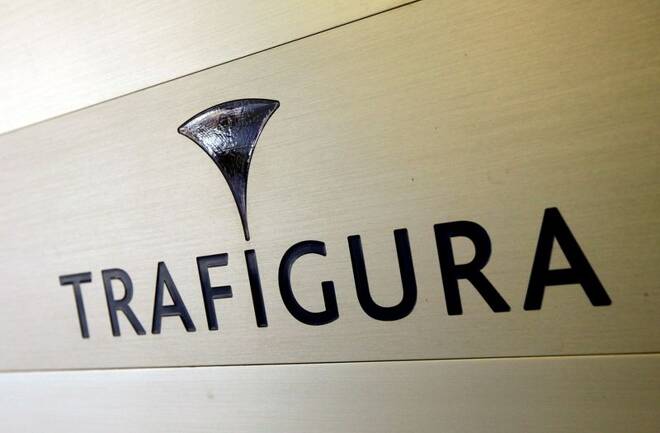Advertisement
Advertisement
Trafigura gets $600 million from Africa’s TDB for Congo cobalt mines
By:
JOHANNESBURG (Reuters) -Commodities trader Trafigura has agreed a $600 million syndicated financing facility with the Eastern and Southern African Trade and Development Bank (TDB) to develop cobalt and copper mines in the Democratic Republic of Congo.
JOHANNESBURG (Reuters) -Commodities trader Trafigura has agreed a $600 million syndicated financing facility with the Eastern and Southern African Trade and Development Bank (TDB) to develop cobalt and copper mines in the Democratic Republic of Congo.
Trafigura said the funding would enable it to complete Congo miner Chemaf’s new mechanised mine at Mutoshi, processing plant in Kolwezi, and the expansion of its Etoile mine and processing plant in Lubumbashi.
Trafigura in January signed a $600 million financing and marketing deal with Chemaf and its Dubai-based parent company Shalina Resources. Under the agreement Trafigura will market all the cobalt hydroxide produced by Chemaf’s Congo operations.
Mutoshi, expected to start producing by the fourth quarter of 2023, will become the third-largest cobalt mine in the world, Trafigura said on Monday, with a capacity of 16,000 tonnes of cobalt hydroxide and 48,000 tonnes of copper cathodes a year.
TDB, a Mauritius and Burundi-headquartered multilateral bank with 22 member states spanning the continent from Egypt to Congo to Zimbabwe, was the mandated lead arranger of the financing. Trafigura did not detail which other banks were involved.
“We look forward to welcoming additional international and African banks to the syndicate in subsequent rounds of refinancing for these vital developments for the supply of critical minerals and the DRC economy,” said Trafigura’s head of nickel and cobalt trading Socrates Economou.
Mutoshi was the site of an artisanal cobalt mining formalisation project run by Trafigura and Chemaf along with non-governmental organisation PACT for nearly two years. The project ended on Dec. 31 2020 when Chemaf announced plans to turn the site into an industrial mine.
(Reporting by Helen Reid; editing by Louise Heavens and Jason Neely)
About the Author
Reuterscontributor
Reuters, the news and media division of Thomson Reuters, is the world’s largest international multimedia news provider reaching more than one billion people every day. Reuters provides trusted business, financial, national, and international news to professionals via Thomson Reuters desktops, the world's media organizations, and directly to consumers at Reuters.com and via Reuters TV. Learn more about Thomson Reuters products:
Advertisement
